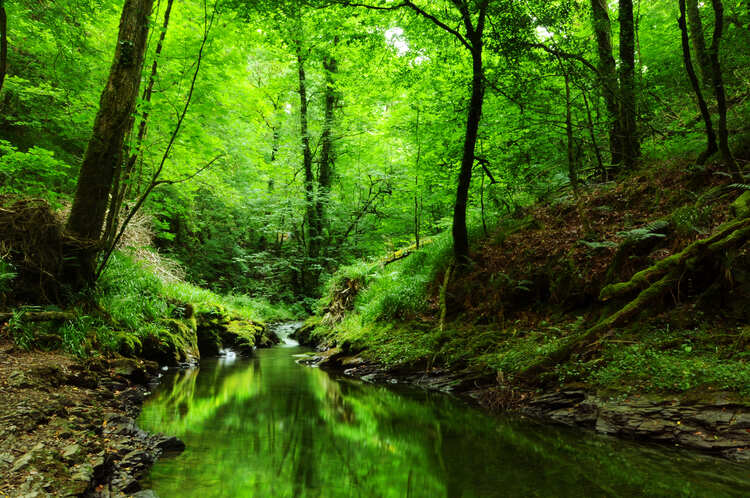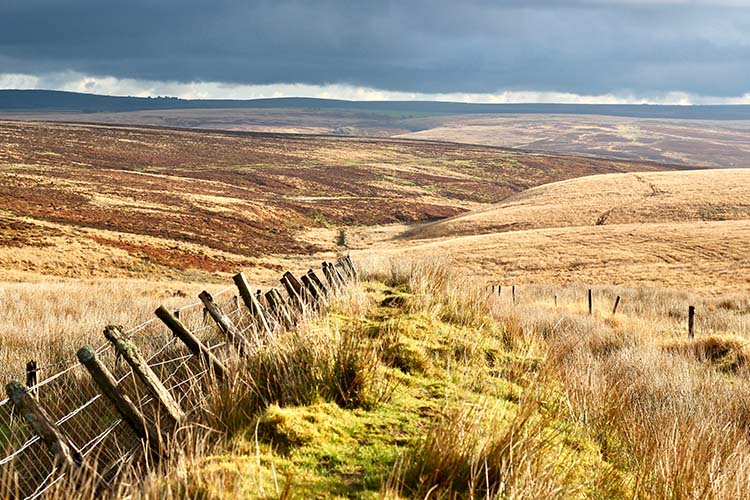
The National Trust is to plant 100,000 trees to create a unique, and environmentally important, temperate rainforest in north Devon
By
Rainforests are automatically associated with tropical countries such as the Congo, Brazil and Indonesia. They are most certainly not associated with Devon in southwest England. But rainforests come in all sorts of shades, including temperate rainforests, and they are just as important to wildlife and our general environment as the tropical rainforests of Brazil.
With its damp and often fairly mild climate, large stretches of Britain’s Atlantic coastline were once covered in a richly diverse temperate rainforest (also known as a Celtic rainforest or Atlantic woodland) that was home to some unique plant and animal life, including some endemic species. The most commonly found tree species in these forests are alder, birch, rowan, willow and hazel. But, perhaps as noticeable as the trees are the many ferns, lichens, mosses and liverworts that, in a healthy temperate rainforest, can often cover everything, giving the impression of a giant, spongy green mat laid out across the forest. Not only are Britain’s temperate rainforests unique ecosystems, but, like tropical rainforests, they are excellent carbon stores.
However, hundreds of years of tree felling and forest clearance for farming and development projects has dramatically reduced Britain’s temperate rainforests, and today, only isolated fragments remain, with many of these under threat from air pollution and invasive species (the rhododendron being especially problematic).
Now, though, the National Trust has announced an ambitious programme to re-establish temperate rainforests in North Devon by planting 100,000 trees. The planting will take place across three sites, with 50,000 trees to be planted at Arlington Court, 38,000 on Exmoor and 20,000 at Woolacombe/Hartland. Together this will create 50 hectares (123 acres) of temperate rainforests with more planting to follow in the coming years.

John Deakin, Head of Trees and Woodlands at the National Trust said: ‘Temperate rainforests used to be expansive wooded habitats along the western seaboard of the UK, but now all that’s left are fragments, covering only one per cent of Britain. As a result, the rare specialist plants that depend on this habitat now desperately cling to the remaining fragments for survival, with some of the woodlands we care for in north Devon containing nearly the entire global population of some of these species, such as the Devon Whitebeam. Without urgent action, these unique plants could soon be facing extinction.’

John continued: ‘With our work at the sites at Arlington, Woolacombe and on Exmoor, we are working on expansion, rather than just preservation. This is important because the conditions many of these rare plants thrive in are not necessarily conducive to disturbance, which makes regeneration tricky. But by planting on the edges of these existing woodlands, we can ease the pressure caused to the existing delicate vegetation and instead help the woodlands evolve outward for the future.’
Related articles:




